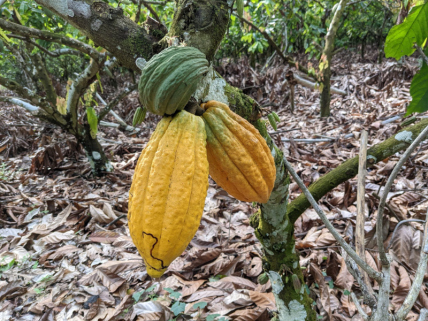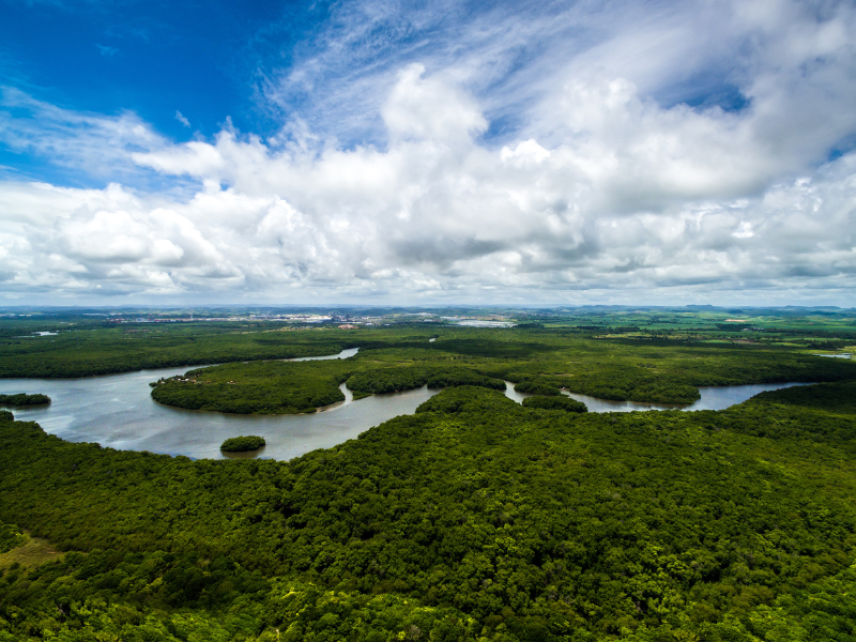Professor Coslovsky leads research to boost exports of forest-friendly products from the Brazilian Amazon
Salo Coslovsky, NYU Wagner Associate Professor of Urban Planning and Public Service, is leading a new Brazilian research initiative, Infloresta, to examine how Brazil can increase its share in the global market for forest-friendly products. Right now, the market is estimated at US$ 176.6 billion, but products from the Brazilian Amazon only comprise about 0.17% of the total. According to preliminary research by Infloresta, however, exports of commodities such as cocoa, palm oil, honey, black pepper and Brazil nuts have the potential to be seven times higher. And if these exports reached the average share of all Brazilian exports, companies and communities based in the Amazon would accrue US$ 2.3 billion per year.
Infloresta is a spin-off of the Brazilian research initiative Amazônia 2030 that is developing a sustainable action plan for the Amazon. According to Juliano Assunção, coordinator of Amazônia 2030 and director of the Climate Policy Initiative (CPI/PUC-Rio), while “Amazônia 2030 aims to trace paths for the sustainable development of the forest. Infloresta is essential to investigate how to promote economic activities compatible with it,” says Juliano Assuncao, who further explained that his group is “looking to delve into the different value chains to examine how the production of forest-friendly products can reach their full potential.”

Infloresta is sponsored by multiple organizations, including Plano Amazônia, a joint initiative of the three largest private banks in Brazil: Bradesco, Itaú Unibanco and Santander, two Brazilian non-profits Instituto Arapyaú and Instituto humanize, Kawa Capital Management, and Amazônia 2030. “Through a scientific approach, Infloresta has the potential to identify new investment opportunities and support businesses that have ESG at their core”, says Cristina Baldim, vice president of Kawa Capital Management. Georgia Pessoa, director of Instituto humanize emphasizes the multidisciplinary nature of the project: “Collaboration between specialists and entrepreneurs in the region, in addition to greater investment in infrastructure, technology and knowledge, can build up value chains and promote greater scale in commercialization.”
During the first phase of the project, researchers will examine the cocoa value chain, a US$ 9 billion global market. In the 1980s, Brazil was a leading cocoa producer but today it holds seventh place. The leaders are Ivory Coast, with 40% market share in the cocoa trade, and Ghana (18%), followed by Nigeria (7%) and Ecuador (7%). Between 2017 and 2019, Ivory Coast exported cocoa to 39 countries, while the Brazilian Amazon only sold to four nations. “Brazilian cocoa has positive social and environmental impacts. Small farmers are responsible for a large part of the production, mostly carried out in agroforestry systems”, says Thais Ferraz, director of Instituto Arapyaú. “These characteristics can be used to increase the value of Brazilian cocoa, contributing to the opening of new markets and better remuneration for producing families.”
A report authored by Coslovsky's team last year suggests there are many opportunities to improve the performance of forest-compatible products in international trade. Currently, the largest exporters of forest-friendly products are countries that face similar or more challenging social, political and economic conditions than Brazil. For example, Vietnam holds 42% of the global black pepper trade and Bolivia 52% of shelled Brazil nuts. The Brazilian Amazon has, respectively, 7% and less than 5% of these markets. “Companies and communities in the Brazilian Amazon have a lot of room to grow before the region's structural issues are solved,” says Professor Coslovsky. “Brazil is missing the opportunity to boost the region's economy and the chance to produce and profit with no trees having to be cut down at all.”
Authorship courtesy of O Mundo Que Queremos.
